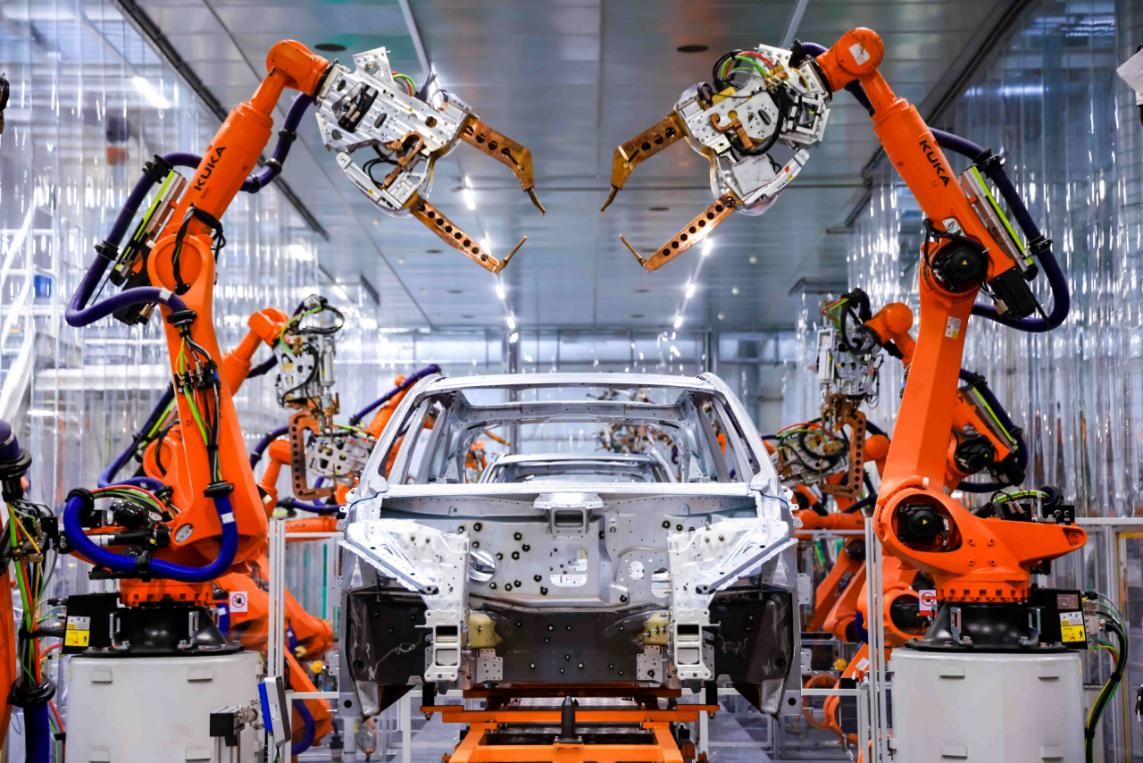Audi unveils EV ambition with cutting-edge Changchun plant


German premium carmaker Audi has underlined its electric ambitions in China with its most advanced production facility, targeting the world's largest and most competitive auto market.
Built with a focus on sustainability, automation, and digital integration, the facility owned by Audi FAW NEV Co underscores the brand's goal to reset the benchmark for intelligent EV production.
Located in Changchun, capital of Northeast China's Jilin province, it is the German premium brand's first purpose-built plant for fully electric models in China, reflecting its long-term commitment to localization.
The plant is serving as the production hub for the Q6L e-tron and some other models based on Audi's Premium Platform Electric, an electric platform co-developed with Porsche.
The Q6L e-tron, which features German engineering and Huawei's smart driving system, started presales in late May.
The Changchun plant comprises five workshops, including battery assembly, and uses advanced manufacturing techniques such as digital twins and full-automation welding lines.
Audi claims a welding precision of 0.1 mm and real-time quality traceability down to every bolt, aiming to rival or surpass the quality standards of its European operations.
Safety and quality have become key battlegrounds in China's premium EV segment.
In response, Audi has emphasized battery protection systems that exceed new national standards and vehicle body structures using an industry-leading proportion of high-strength steel and aerospace-grade materials.
The plant is also designed for zero-carbon operation, with rooftop solar panels expected to generate more than 35 million kWh of electricity per year and closed-loop recycling systems in place for waste and water.
The launch of the Changchun base comes as Audi seeks to defend and grow its share in a market increasingly dominated by Chinese EV brands.
With more than 40 percent of global NEV sales occurring in China, success in this market is pivotal to Audi's future.
The German group hopes that combining its engineering pedigree with deepened local integration will restore the momentum it has lost to nimbler, software-driven competitors.
The Changchun project signals that Audi is not just staying in the EV race — it wants to help shape the next lap.




































